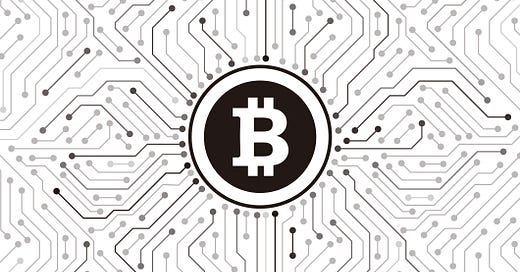Welcome to Yaka Stuff, our weekly newsletter that covers news, industry perspectives, and updates from the Hard Yaka ecosystem. Check out our last report here.
This week:
Kamala meets with crypto
When central banks buy Bitcoin
Stuff happens
1. Kamala meets with crypto
One of the main takeaways from Consensus 2024 was that Republicans, led by former President Donald Trump, were a step ahead on the crypto narrative going into this year’s election.
Trump further leaned into his pro-crypto pivot at this year’s Bitcoin 2024 conference, vowing to sack SEC chief Gary Censler.
Here’s the FT (via Sam Ostler):
In a direct pitch to cryptocurrency devotees at the Bitcoin 2024 conference in Nashville, Tennessee, on Saturday, the Republican candidate promised to end the Biden administration’s “crusade” against bitcoin.
“I pledge to the bitcoin community, that the day I take the oath of office, Joe Biden and Kamala Harris’ anti-crypto crusade will be over,” said Trump.
“On day one, I will fire Gary Gensler,” Trump said to a massive roar from the roughly 5,000 people seated in the audience.
…
Trump on Saturday promised to end the “repression”, saying rules should be “written by people who love your industry, not by people who hate your industry”.
He also said he would instruct the Department of Treasury to abandon the creation of a central bank digital currency, and appoint a bitcoin and crypto advisory council.
The future of money clearly moves the political needle. Not to be outdone, Vice President Kamala Harris met with major players in the industry including Coinbase and Ripple. It’s being framed as a relationship “reset.”
Here’s Yahoo/Fortune:
In recent days, that outreach effort has included crypto exchange Coinbase, stablecoin company Circle, and blockchain payments firm Ripple Labs, according to the report.
One source told the FT that the message Harris wants to send is that Democrats are "pro-business, responsible business."
Her elevation to the top of the Democratic presidential ticket is also seen as a chance to reset relations with the tech sector after the Biden administration's regulatory stance created a backlash in what has traditionally been a more liberal-leaning industry.
2. When governments buy Bitcoin
Senator Cynthia Lummis was also at Bitcoin 2024, where she pitched the idea of Bitcoin as a strategic reserve. For Lummis, utilizing the world’s reserve currency to buy a deflationary asset is a potential solution for the nation’s growing national debt.
Here’s Coindesk:
U.S. Senator Cynthia Lummis plans to introduce legislation calling for a "strategic bitcoin reserve" that will reduce the national debt of the United States by buying 1 million bitcoin (BTC) over the course of five years.
The bitcoin would be held for at least 20 years, she said.
"This is the solution. This is the answer. This is our Louisiana purchase moment,” the Wyoming senator said on stage after former President Donald Trump spoke and endorsed the idea of a bitcoin reserve.
And here’s Senator Lummis:
Today, during Bitcoin 2024, U.S. Senator Cynthia Lummis (R-WY) announced a revolutionary proposal to supercharge the U.S. dollar by establishing a strategic Bitcoin reserve to fortify the dollar against rising inflation and cement U.S. leadership in the rapidly evolving global financial system.
“Establishing a strategic Bitcoin reserve would firmly secure the dollar’s position as the world’s reserve currency into the 21st century and ensure we remain the world leader in financial innovation,” said Lummis. “Families across Wyoming and the U.S. are struggling to keep up with soaring inflation rates and record-breaking costs while our national debt reaches unprecedented levels; now more than ever, we need to create a brighter future for generations of Americans by diversifying into Bitcoin and securing our economic future.”
The United States currently maintains strategic reserves in certain hard assets critical to American national security and independence such as gold and petroleum. Establishing a strategic Bitcoin reserve to bolster the U.S. dollar with a digital hard asset will secure our nation’s standing as the global financial leader for decades to come. This strategic Bitcoin reserve would be required to hold onto the Bitcoin for 20 years, the only thing it could be used to pay for during that time period is paying down our country’s national debt.
The U.S. government already owns over 210,000 bitcoins. China is a close second with $12.17 billion worth, according to Bitcoin Treasuries.
But moreover, this would be a seminal moment for digital assets, validating not only the concept but also the underlying technology. If blockchain is good enough for the U.S. government, then it would presumably be good enough for finance and banking.
Bitcoin is fundamentally the tokenization of a single asset, enabling it to exist natively in our digital universe, the internet. As the past three decades have shown, there are exponential efficiency benefits to being digitally native. It’s inevitable that this process will eventually be replicated across all other relevant assets in some way—from crypto to Jpegs to bank deposits.
3. Stuff happens
Coinbase fined £3.5mn by UK regulator over ‘high-risk’ customers
Exclusive | Revolut Targets Valuation Jump to $45 Billion in Sign of Fintech Revival
Democrats sign on to attempt overturning SEC's crypto accounting rule
Stablecoins Signal Crypto Ecosystem Buoyancy as Market Cap Jumps to $164B
Ferrari extends cryptocurrency payment system to Europe after US launch
What Does Kamala Harris' (Presumptive) Nomination Mean for Crypto This Election?
Lightspeed Newsletter: The lifecycle of a Solana transaction
Pro-crytpo group spending nearly $1.4m for Ansari as she and Terán face off in CD3




